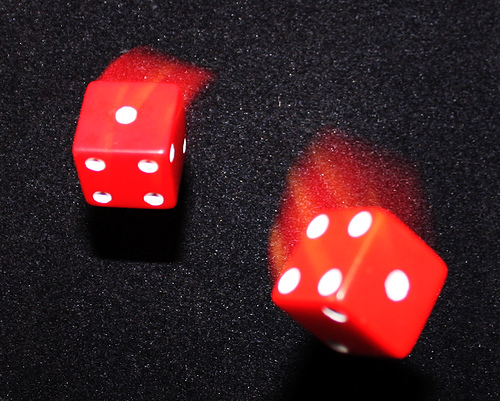Some people think that addicts become addicts because they don’t have any self-control. They don’t understand why it’s so difficult to say no to one more drink, one more cupcake or one more roll of the dice. They don’t quite believe that it’s not always an addict’s fault when their lives spiral out of control. The concept of an addictive personality sounds like a cop-out to these people. Nevertheless, according to many psychiatrists, addictive personalities do exist.

According to Wikipedia, people who are prone to addictive personality disorder tend to behave impulsively, tend not to be terribly ambitious (at least not by society’s standards), avoid setting goals, are prone to stress, lack self-esteem and live relatively isolated lives. Interestingly, some extraverts are also at risk of the disorder, especially when combined with some of the other traits, or with obsessive self-criticism. It’s been estimated that between 10% and 15% of the population in the US has an addictive personality.
The trouble is that there is no conclusive scientific evidence proving the existence of addictive personality disorder; although there seems to be general agreement that certain personality traits hint at greater susceptibility to addictive behaviour.
Impulse control (or lack thereof)
The lack of impulse control is also referred to as behavioural addiction (Wikipedia). It refers to compulsive, repetitive behaviour that is not driven by physiological needs. Whereas drug and alcohol addicts develop physical signs of addiction and their bodies become physically dependent on their poison of choice, people with behavioural addictions repeat a certain kind of behaviour because it is rewarding in other ways.
For example, people shop compulsively because it relieves stress, people eat compulsively because it provides comfort, people gamble compulsively because it gives them a rush.
In certain psychological circles, these behaviours are referred to as impulse control disorders and not addictions. These days, video gaming and internet addiction can be added to this list.
Treatment
Drug and alcohol addictions – the physical addictions – are relatively easy to treat. That’s not said in a facetious way. It just means that there are structured programmes and medications to help addicts regain control over their lives. But over-eaters can’t simply give up eating; compulsive buyers can’t avoid shops for their rest of their lives. They need to learn different coping mechanisms to help them manage their behaviour.
Often, psychologists see addicts swop one behaviour for another. An over-eater might become addicted to exercise. A compulsive shopper might become addicted to religion. A compulsive gambler might become addicted to video games. (This is strongly indicative of an addictive personality.)
Whether addictive personality disorder exists or not is up to the scientists to decide; in the meantime, people who are prone to physical and behavioural addictions should ignore labels and concentrate on the task at hand. Which is living each day as it comes and realising that addictions are for life – and so is recovery.
This guest post was written by Sandy Cosser on behalf of Ramot. Ramot is a holistic drug and alcohol rehab centre in Cape Town, South Africa.

